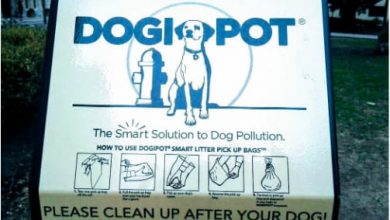Uncovering the Life of a Yard Dog: A Look into Man’s Best Friend’s Role in Home Protection

What is a Yard Dog?
Introduction
A yard dog, also known as a guard dog, is a type of canine that has been specifically trained to protect and guard its owner’s property. This includes alerting the owner of any potential danger or intruders. The yard dog is an important part of many households and can provide a great sense of security.
What is a Yard Dog?
Yard dogs are typically large breeds such as German Shepherds, Rottweilers, Doberman Pinschers, and Great Danes. They are usually trained to be protective and alert their owners to any potential threats. The yard dog’s job is to patrol the perimeter of the property and act as a deterrent for anyone attempting to enter the premises without authorization.
History of the Yard Dog
The history of the yard dog dates back centuries ago when it was used by farmers and ranchers to protect their livestock from predators. Today, they are used in many households around the world as loyal companions and guardians.
Types of Yard Dogs
There are several types of yard dogs that can be used for protection purposes. Some popular breeds include German Shepherds, Rottweilers, Doberman Pinschers, Akitas, Great Danes, Bullmastiffs, Boxers, Rhodesian Ridgebacks, and Mastiffs. These breeds have been specifically bred for their strength and loyalty which makes them excellent guard dogs.
Characteristics of a Yard Dog
Yard dogs have certain characteristics that set them apart from other breeds. They are typically very alert and attentive with strong territorial instincts which make them ideal for guarding properties. They also have strong protective instincts towards their owners which make them very loyal companions. Additionally, they tend to be very intelligent with an innate ability to detect intruders before they can get close to the property line or home itself.
Benefits of Having a Yard Dog
Having a yard dog provides many benefits including added protection against intruders or predators who may try to enter your property without permission. Additionally, they can provide companionship for those who live alone or who do not have family nearby. Furthermore, having a yard dog can give you peace of mind knowing that your home is secure while you’re away or at night while you sleep soundly in your bed knowing someone is watching over you and your home 24/7!
Training and Care for Your Yard Dog
Training your yard dog properly is essential if you want them to be effective at protecting your property from unwanted guests or predators alike! It’s important to establish boundaries early on so that your pup knows what areas are off-limits as well as what behaviors are acceptable and unacceptable in different situations. Additionally, it’s important to give your pup plenty of exercise so that they stay fit both physically and mentally! Lastly, make sure you provide regular vet checkups so that any underlying health issues can be caught early on if present!
Common Health Issues with Yard Dogs
As with all breeds there are certain health issues that may arise due to genetic predispositions or environmental factors such as diet deficiencies or exposure to toxins in their environment (i.e., lawn chemicals). Common health issues include hip dysplasia (a painful joint condition), allergies (skin reactions), ear infections (due to excessive moisture), bloat (stomach torsion), eye problems (cataracts), heart disease (congenital defects), cancer (tumors) among others! It’s important for pet owners to monitor their pup closely for any signs/symptoms associated with these conditions so that treatment can be administered immediately if needed!
Conclusion
Yard dogs provide an invaluable service by protecting our homes from unwanted visitors or predators alike! They offer us peace of mind knowing our families are safe while we sleep soundly at night without worry! Although there may be some common health issues associated with this breed it’s important to remember that proper training/care will help ensure these problems don’t become too serious if caught early on!




